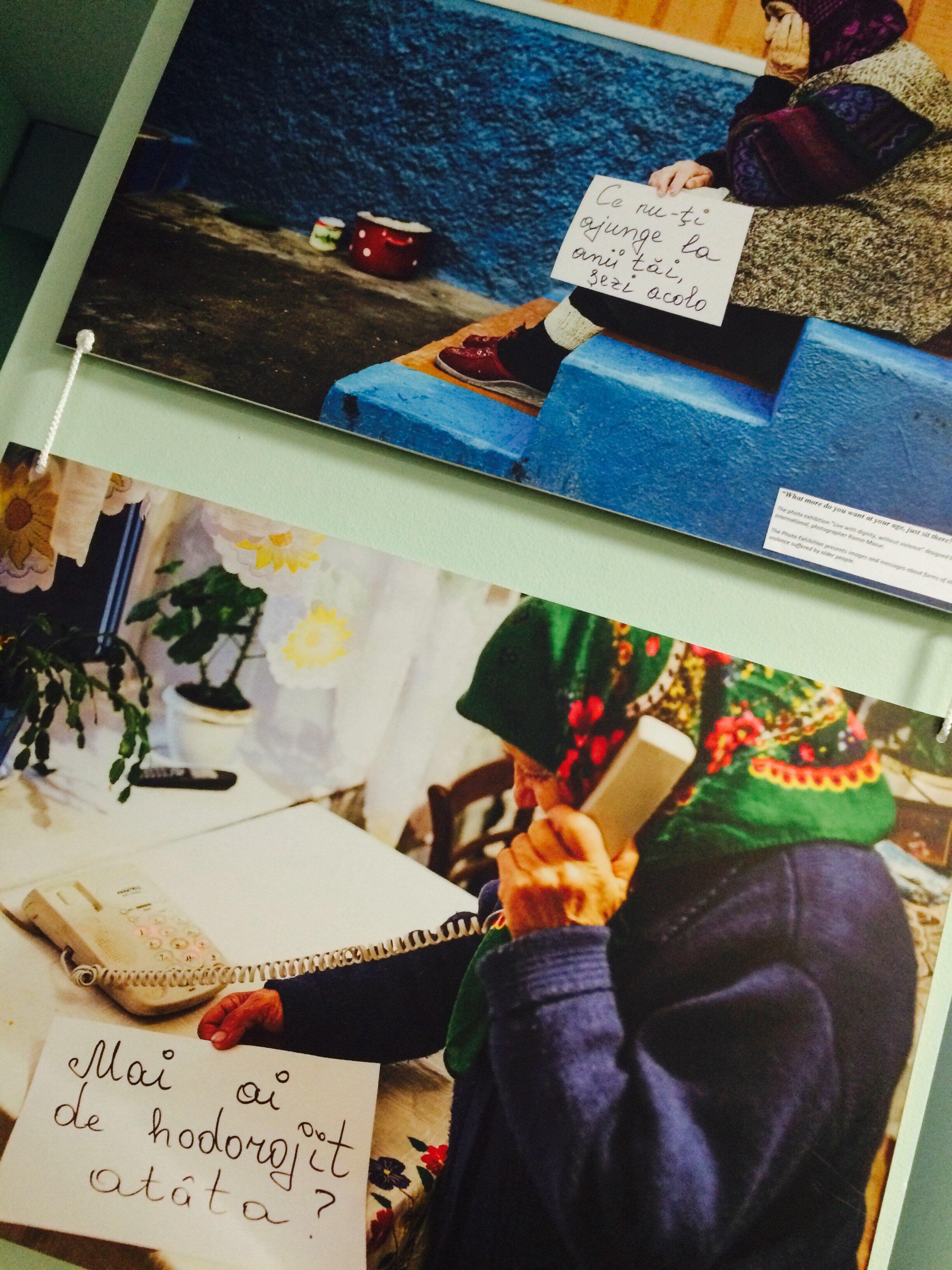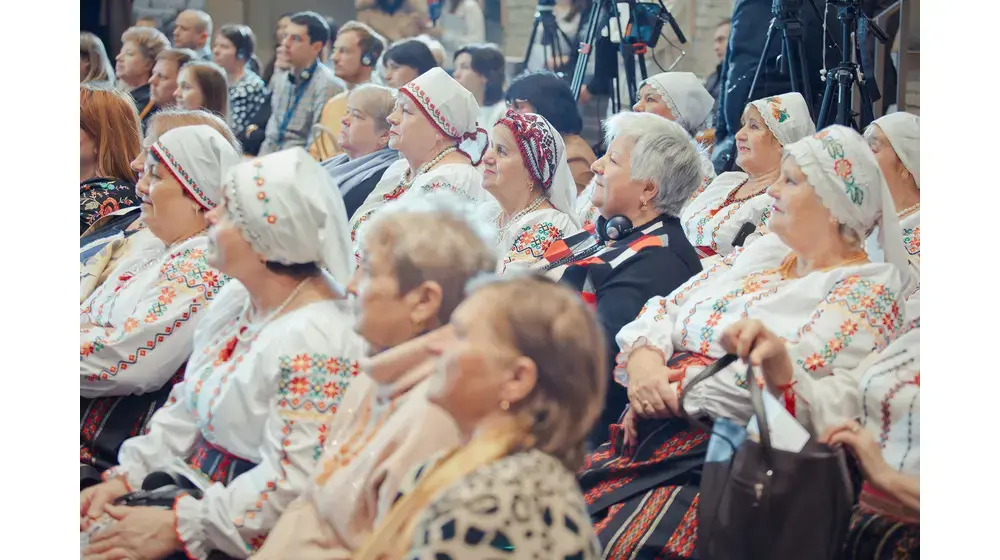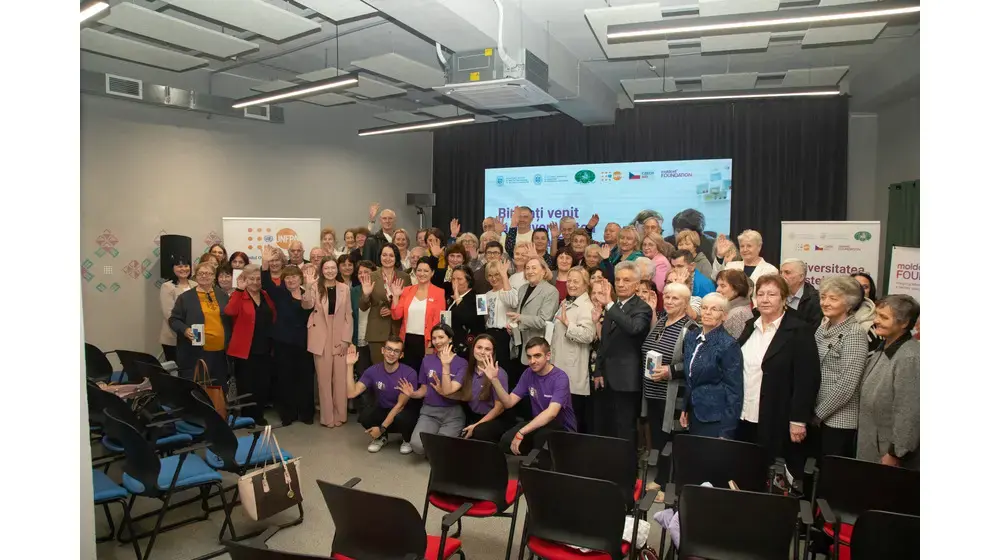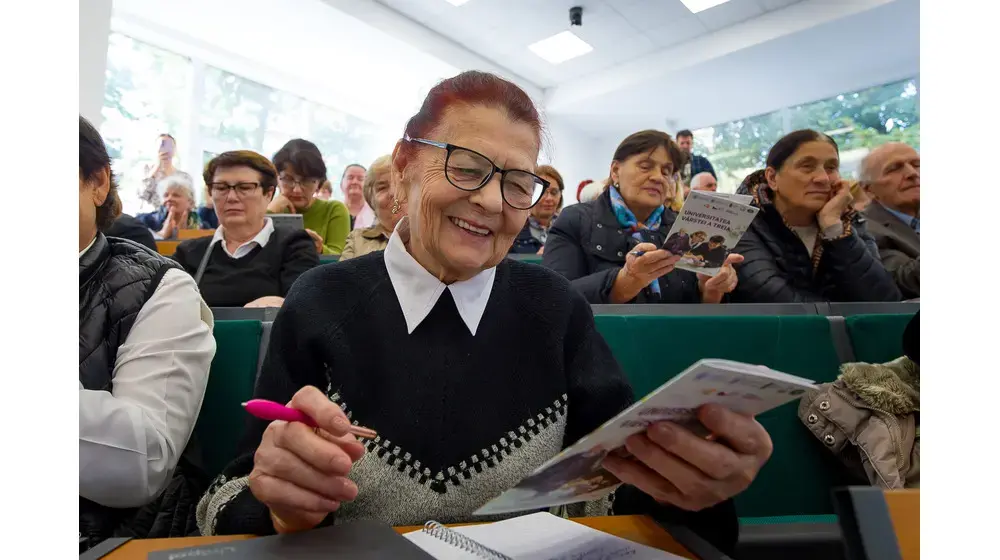Chisinau - Challenging poverty and preventing abuse and violence against older people needs a multidisciplinary approach and a complex policy package which covers the whole lifecycle, including education, families, work, and retirement, promotes positive attitudes, ensuring older people are an active part of society so they can realise their potential, say reports presented to the first joint meeting on ageing in the Republic of Moldova.
The World Bank, the United Nations Population Fund and HelpAge International held their first round-table addressing ageing in the Republic of Moldova. The event focuses on the regional and national demographic context and trends, based on the results of the findings of a regional report authored by the World Bank: “Golden Aging: Prospects of the Healthy, Active, and Prosperous Aging in Europe and Central Asia” and a national report authored by HelpAge International and the National Centre for Demographic Research: “Breaking the Silence: Elder abuse in the Republic of Moldova”.
‘’Societies are aging across Europe and central Asia but individuals are not – a demographic trend driven by declining fertility rates rather than increased longevity,’’ said the Senior Economist of the World Bank, Mr Johannes Koettl, presenting the report Golden Aging: Prospects for Healthy, Active and Prosperous Aging in Europe and Central Asia.
In many countries across the region, including the Republic of Moldova, a common perception is that pensions and health systems will come under pressure because an increasing number of older people will depend on the contributions of fewer workers to sustain these systems, he said. But if governments enable individuals to participate more and longer in the labour market, dependency ratios could remain quite stable.
The report concludes that a successful policy package for addressing ageing must cover the whole lifecycle – supporting education, families, work, and retirement.
A separate report, shows that more than a quarter of the elderly in Moldova (28.6%) have suffered violence and abuse while in a quarter of cases, the abuser was a member of the family or close to the person.
"Breaking the Silence: Elder abuse in the Republic of Moldova", is one of the first reports addressing violence and discrimination against older people in Moldova.
The study by HelpAge International and the National Centre for Demographic Research shows that violence and abuse of older people in Moldova is recognised but in 80 per cent of cases, violence is unreported.
According to the report, psychological and emotional violence is the most common at 14 per cent, followed by economic violence at 11 per cent and physical violence at 4 per cent.
Discriminatory attitudes and prejudices result in low rates of employment with only 11.6 per cent of older people employed in Moldova. Their social lives are limited to the family, where more than half of older people (57.9%) do not engage in activities outside the home.
Poverty among older people is a major policy priority. According to the report, more than half of older people do not have enough money to meet their needs and poverty is higher in rural areas.
“Everyone has equal rights including the right to live with dignity and this does not change with age,” said Tatiana Sorocan, Country Director of HelpAge International. “However, this research shows that more than a quarter of older people in Moldova experience violence and abuse. We need to make sure that age friendly services are developed and appropriate campaigns are held to raise awareness and stop discrimination and abuse happening in future. HelpAge strives to make sure that older people are included in policies affecting them so they can live safe, secure lives and their rights are respected.”
The presentation of the reports’ findings were followed by a panel discussion with government officials, experts, UNFPA, HelpAge and World Bank representatives on the available options and policy priorities to address Moldova’s demographic challenges.
“The reports’ data and findings are important for development and readjustment of the social policies in the Republic of Moldova and promotion of the reformed imposed by the ageing population,” underlined Boris Gilca, Deputy-Minister of Labour, Social Protection and Family.
Ian McFarlane, UNFPA Representative in Moldova concluded that: “All the policies and actions have to be based on two main principles. First, they should be based on accurate data about the economic realities. Second, the basic human rights of older people should be at the core of the government interventions.”





